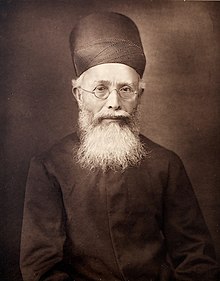- Dadabhai Naoroji, India’s first Indian member of the British Parliament, was a key figure in the anti-colonial campaign.
- His scholastic work, emphasising the drain hypothesis, showed the economic exploitation of India under British rule.

Who was Dadabhai Naoroji?
- Early Life: Naoroji was born in Navsari, Gujarat, into a Parsi Zoroastrian family. He received his education at the Elphinstone Institute School.
- Social Reforms: To promote Parsi social reforms and elucidate Zoroastrian principles, he formed the Rahnumai Mazdayasan Sabha and the Rast Goftar journal.
- Naoroji co-founded the London Indian Society and the East India Association, which advocated for Indian political rights and challenged unfavourable perceptions.
- Indian National Congress: He was a key figure in the Indian National Congress, serving as its President three times.
- British Parliament: From 1892 until 1895, Naoroji was the first Indian MP in the British House of Commons, representing Finsbury Central.
- His work “Poverty and Un-British Rule in India” showed the drain of wealth from India to Britain and its impact on India’s progress.
His Drain Theory and Poverty Proposition
- The Drain Theory of Naoroji: Foreign governance, a lack of immigration, and unequal work prospects are among the six causes he identified as contributing to the wealth drain.
- The Effect of the Drain: Naoroji predicted a 200-300 million pound drain from India to Britain, impeding India’s economic advancement.
- Railways and Tribute: According to Naoroji, India paid for services like as railways, but the earnings were sucked out of the country, causing economic imbalances.
- Exploitative Trade: Earnings of British workers in India were encouraged to be repatriated, and Indian commodities were undervalued, allowing for economic exploitation.
Major works
- In 1854, Rast Goftar Anglo-Gujarati Newspaper was founded.
- The Parsees’ Manners and Customs (Bombay, 1864)
- European and Asian races, London, 1866
- Indian Civil Service Admission of Educated Natives (London, 1868)
- India’s Needs and Means (London, 1876)
- The State of India (Madras, 1882)
Views & Legacy
- The Importance of Naoroji: He is regarded as a pivotal player in India’s independence struggle, arguing for responsible administration and Indian autonomy.
- Influence on Gandhi: Naoroji’s words influenced Mahatma Gandhi, who saw him as a father figure for the Indian people.
- Admiration: Bal Gangadhar Tilak admired Naoroji’s leadership and remarked that if given the opportunity, Indians would unanimously elect him.
- Naoroji’s efforts have been recognised through the naming of roads, streets, and accolades in his honour.
Source: https://liberalhistory.org.uk/history/dadabhai-naoroji-1825-1917/
